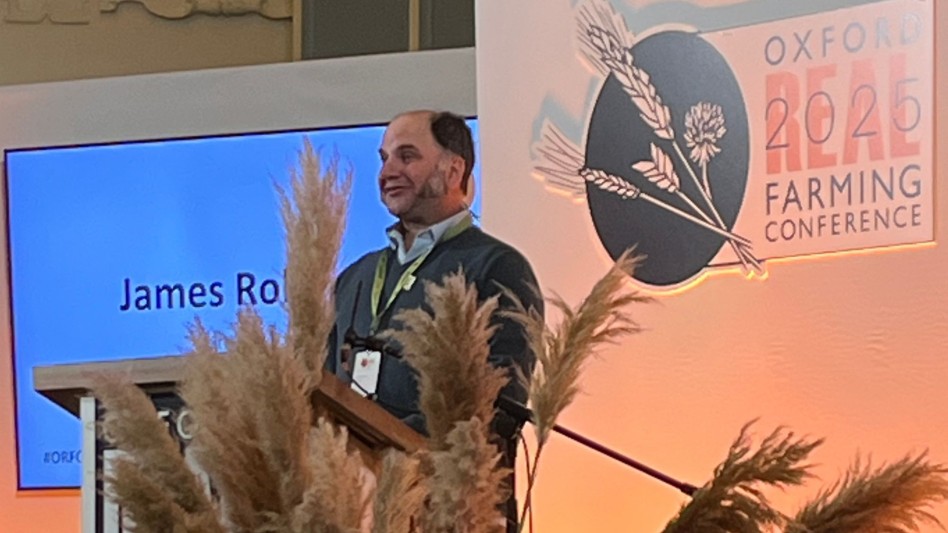The NFFN was fortunate enough to have its staff team and many farmers at the 2025 Oxford Real Farming Conference - the highlight of many a farmer and agroecology stakeholder’s calendar across the globe. Having been invited to speak at the closing plenary, NFFN England chair James Robinson shared some personal and universally important reflections on his experiences at the 2025 conference.
The opening plenary at the Oxford Real Farming Conference (ORFC) was already full before I was anywhere near the Town Hall, so I ended up watching a live feed in the Wesley Memorial Church instead. A few words stuck in my mind immediately: Collective. Inclusivity. Sowing the seeds. The beginning.
We need open minds as farmers. Open to learning. Open to criticism and praise. Open farms - open to the public and policymakers; open to school children, to feed their minds with wondrous things, with nature and food production side by side. We need to show the possibilities.


